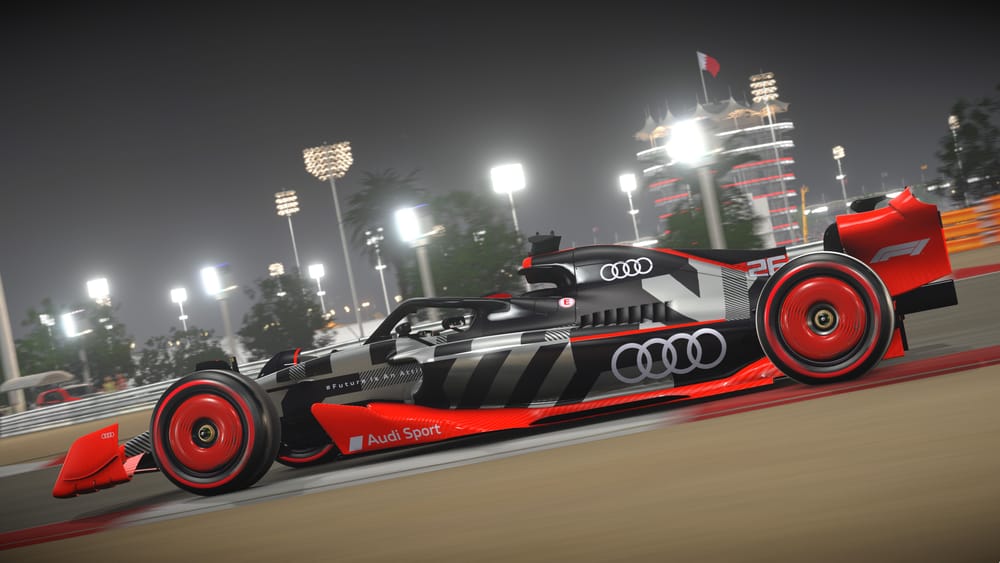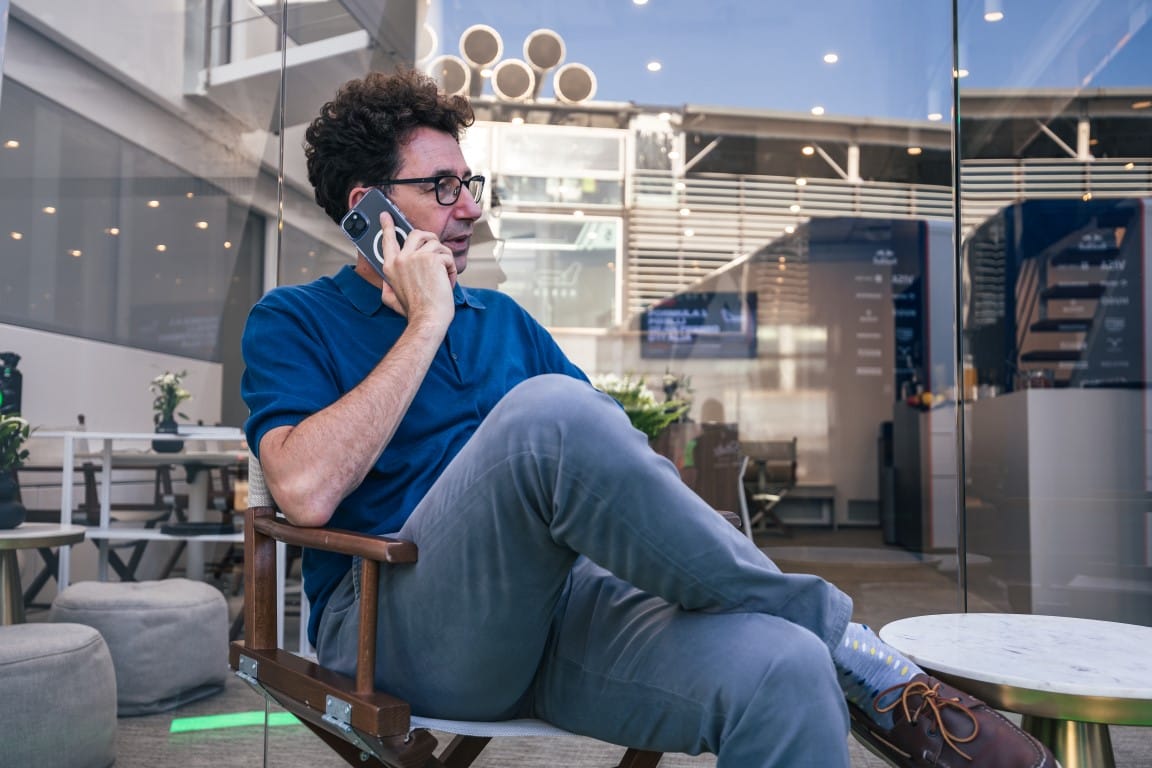Up Next

Audi looks likely to agree a part-sale of its Formula 1 team before it even gets on the grid.
The complete takeover of Sauber was considered essential by Audi at the start of 2024, when it opted to up its original 75% ownership to 100%.
That process is due to be finalised ahead of 2026, when Audi will rebrand the team completely and officially enter F1 for the first time at the start of new regulations that will include the debut of Audi’s first F1 engine.
Reports in Germany indicate that Audi will not have complete ownership of the team by then, though.
An investment from Qatar’s sovereign wealth fund, which has hundreds of billions of dollars of assets in various countries across a range of industries, is believed to have been pursued this year and could be announced at the Qatar Grand Prix in three weeks’ time.
Qatar would make a minority investment, leaving Audi with a controlling stake in the F1 team.
WHY (PART) SELL?
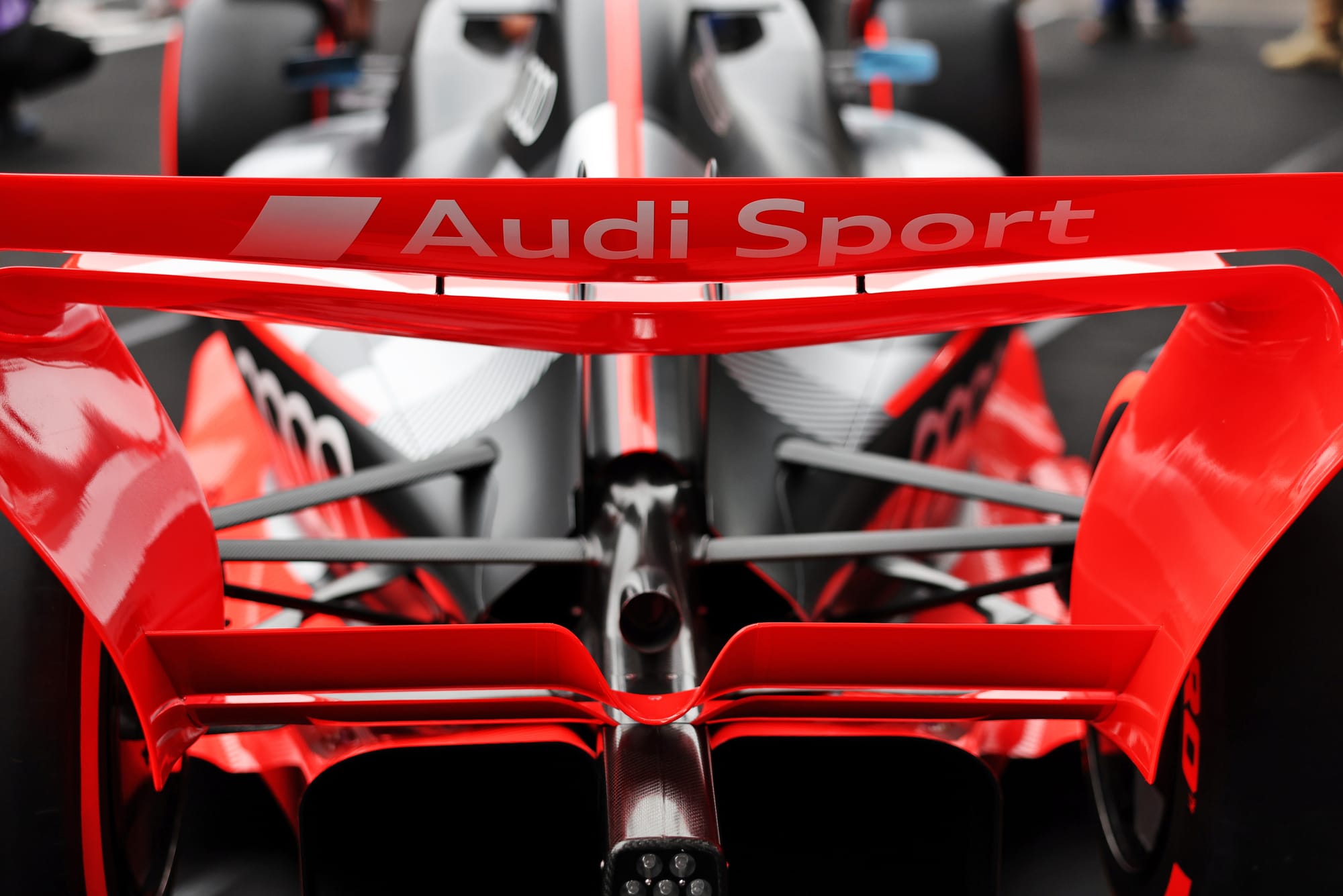
Audi is not commenting on the speculation but its interest in such a deal likely reflects the extra investment required to turn around Sauber’s headquarters in Hinwil.
Purchasing the Swiss team while setting up its own bespoke F1 engine facility at the Audi Neuburg base has come at immense cost. Based on the original deal for 75%, acquiring 100% of Sauber has likely cost around $600million. The engine development will likely have a nine-figure cost attached to it too.
Funding further developments at Hinwil via external investment will ease pressure at a time when the parent VW Group is taking drastic action to reduce costs, including Audi plant closures and thousands of jobs being cut.
Audi remains adamant its F1 project is not in jeopardy despite those wider company issues but any programme under the control of an automotive manufacturer is vulnerable to such variables, so even if complete control of Sauber was the preferred route it may not be pragmatic.
Retaining a majority stake would keep Audi in control and is unlikely to impact the branding of the team. This is consistent with the Qatar Investment Authority’s strategy of diversifying into various non-domestic organisations including Barclays and even the VW Group, which means there is already a link there.
The state is already heavily invested in F1 through the long-term Qatar GP deal and Qatar Airways’ title sponsorship. It has been linked with a potential bid for F1’s commercial rights at various points in the last couple of years, too.
A CLEAR TREND
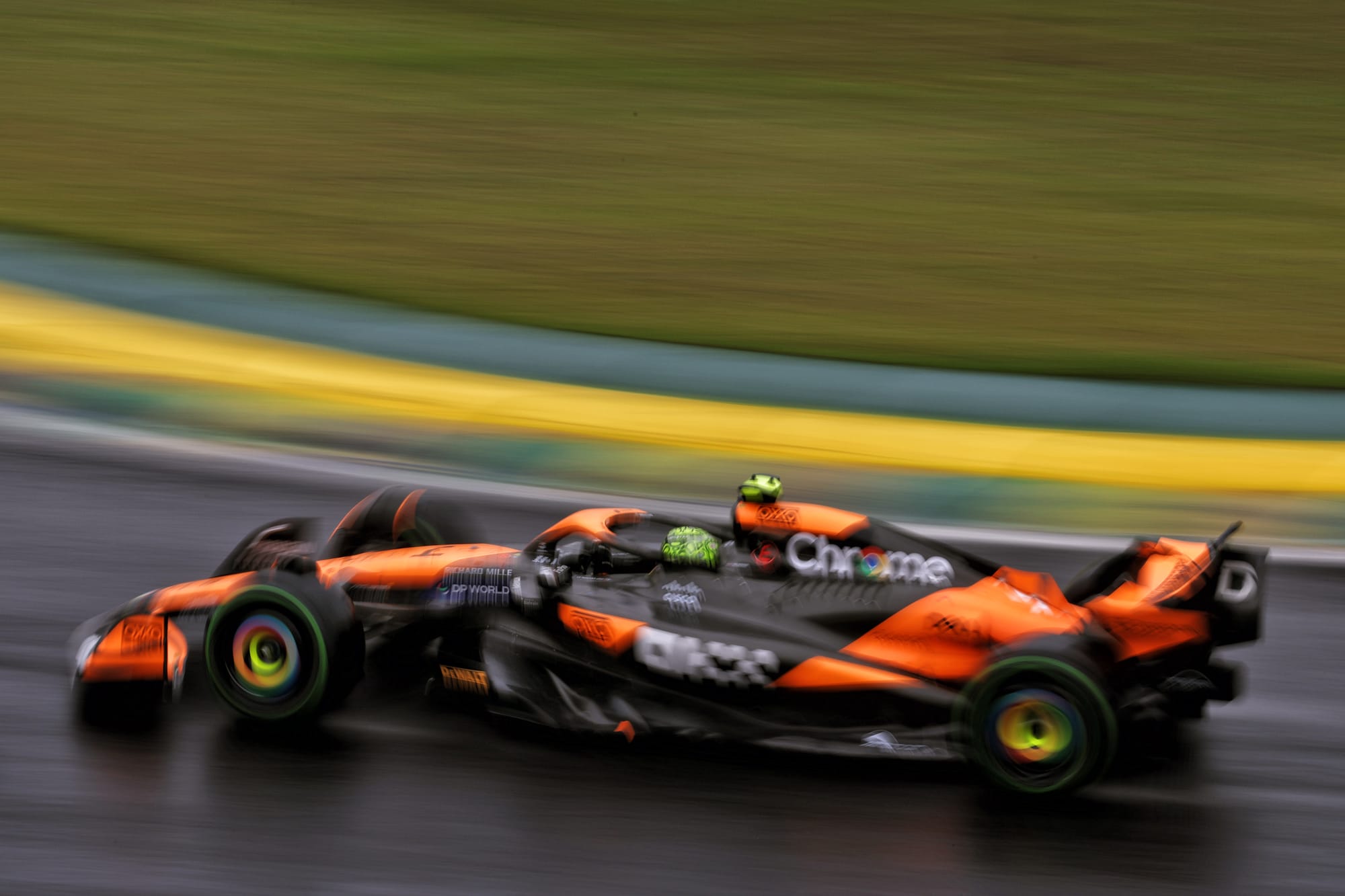
Although it is not on as grand a scale it is similar in principle to Mumtalakat, the sovereign wealth fund of Bahrain, investing in McLaren: essentially, Qatar gets a low-responsibility and potential high-yield F1 investment, attached to a prestigious brand, as well as a different route into F1.
For a while, McLaren’s situation was unique. But new investments in minority stakes of F1 teams have become increasingly common as the value of these teams has risen in recent years due to F1’s growing popularity and commercial success.
For example, Daimler only owns one-third of the Mercedes F1 team, with team boss Toto Wolff and INEOS owner Jim Ratcliffe the other owners.
The most prominent sources are investment funds in the US, and the Middle East.
Renault sold a 24% stake in Alpine last year to a group of investors headed by Otro Capital.
Having done the same at a similar time in a deal with Arctos Partners, Aston Martin is expected to sell further stakes in its team to two more US investment funds.
The Public Investment Fund, Saudi Arabia’s sovereign wealth fund, also has a right to shares in the Aston Martin F1 team. It is already an investor in the car company, Aston Martin Lagonda.
YET ANOTHER AUDI TWIST
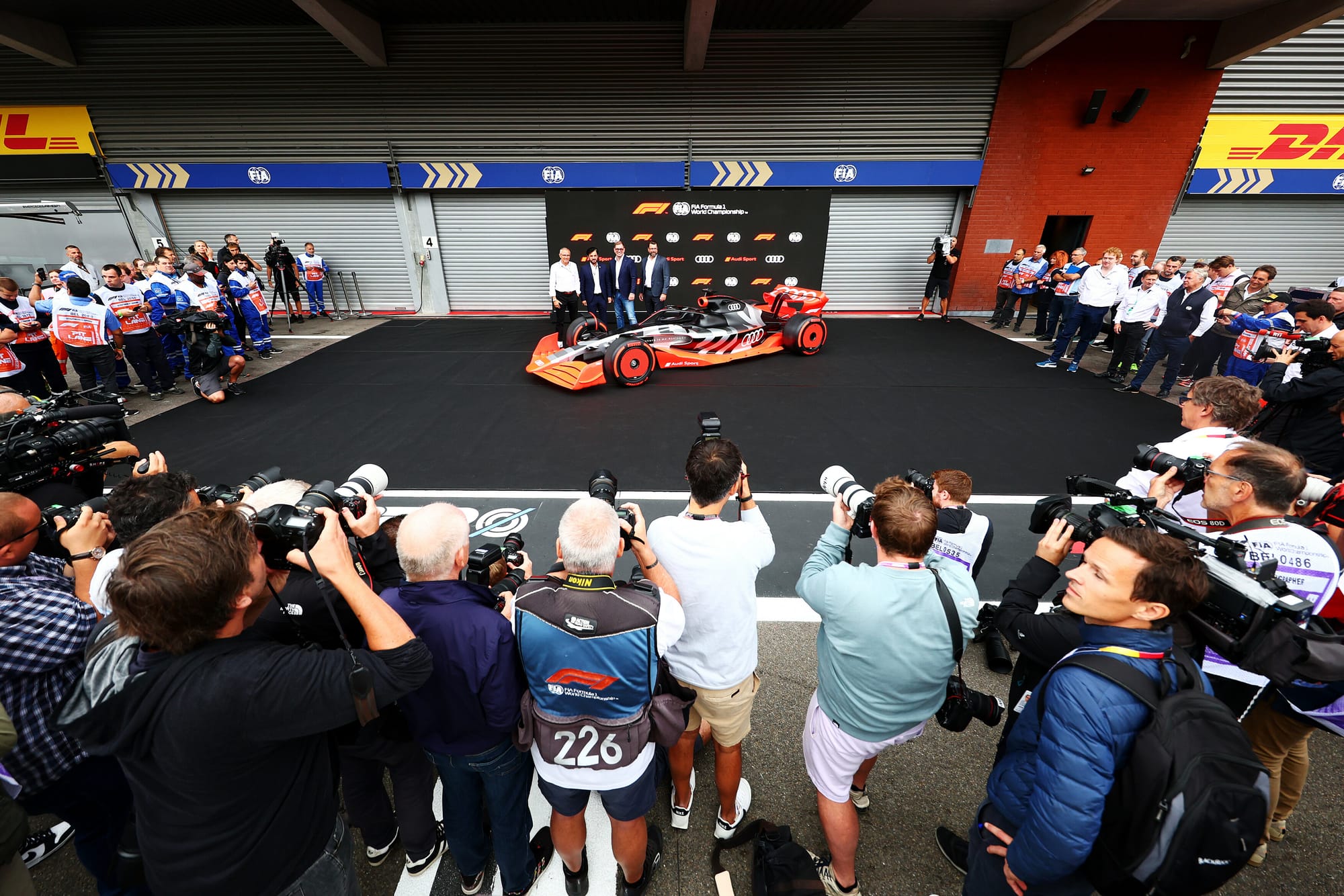
Audi has faced rumours it could sell before it even enters in 2026 for over a year.
Its takeover of Sauber, agreed in late 2022, was set to be a majority ownership with existing owner Finn Rausing, through his Islero Investments company, retaining 25%.
That changed when Audi opted to take 100% control – a move described by the company earlier this year as part of “accelerating” its preparations.
It was felt that Audi needed to assume even greater control to match the greater involvement that was required to address the weaknesses within Sauber, which were greater than Audi expected.
Former project leader Andreas Seidl was known to be insistent that Audi put more into Sauber, sooner, than was initially planned. But there has been a significant overhaul of the management of the team since this played out.
Audi F1 CEO and Sauber CEO Seidl was axed, as was former Audi board member turned Sauber chairman Oliver Hoffmann.
Ex-Ferrari boss Mattia Binotto adopted a different dual role of Sauber CEO and chief technical officer instead, while Audi CEO Gernot Dollner added the Sauber chairman job.
This was done with an emphasis on clearer responsibilities, although the same line was trotted out when Seidl and Hoffmann took their new roles at the start of 2024.
Although Audi has recently locked down its first driver line-up, signing Gabriel Bortoleto to partner Nico Hulkenberg in 2025 and for the start of its new era in 2026, even a part-sale would add a further twist to an already complicated F1 entry.

